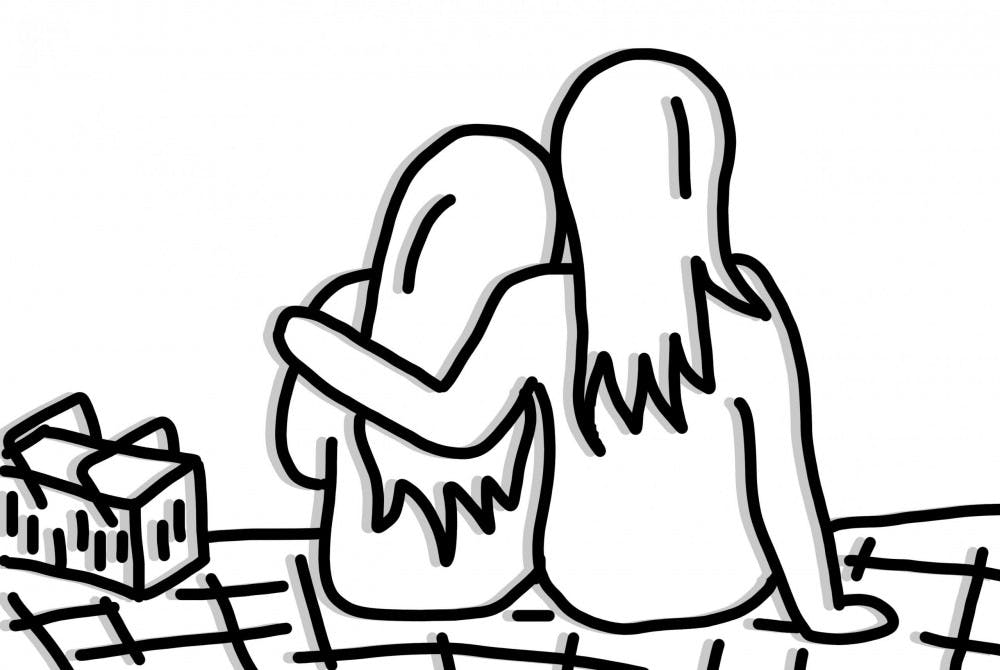
Editorial opinion by Emily Feek
Being queer isn’t just about acceptance and self-love. There’s a significant element of rejection involved in your life, too, because at the end of the day, this world wasn’t built for you.
The media presents us with the idea that a queer person’s story ends when they learn to love themselves. As RuPaul always says, “If you can’t love yourself, how the hell are you gonna love somebody else?” But no one teaches you what comes next, once you love yourself.
Adapting to a society that is still unlearning its heteronormative processes means also unlearning your own heteronormative practices, including internalized homophobia.
Being queer is a different experience for everyone. The intersectional nature of identities make those experiences even more unique. There are infinite facets to the queer experience.
Gender roles and expectations are something most of us probably deal with. Women who are assertive have to be careful, lest they be labeled aggressive. Men who are in tune with their feelings are seen as sensitive or as weak.
Being a part of the LGBTQ+ community isn’t just about finding a balance between outdated expectations and ambition — it goes deeper, especially when it comes to dating.
These systems are heteronormative and favor cisgendered people. As much as we may want to adapt them, we should just make our own. Lacking our own structure makes understanding identity and the dating experience much more intimidating.
Luckily, in the Internet age, queer people are more easily able to find support, advice and community than ever before.
In a column for Tinder’s Swipe Life, Dayna Troisi reflected on a decade of the lesbian dating experience to offer advice to those new to the gay dating scene. Troisi explains how to navigate pre-date jitters, but also delves into the anxiety caused by lack of expectation.
Troisi’s advice: “Bask in it.” If you can, frame the lack of defined rules and roles as freedom. Rather than drowning in uncertainty, learn to embrace it. Heteronormative roles and expectations can be restrictive and stifling, especially when your identity doesn’t fit into any of those boxes, so why not make your own box or throw it out entirely? Who needs a box, anyway?
It is all easier said than done, and a lot of struggles with acceptance and self-love stem from systemic cultural issues. There’s not one right way to go about learning to live under these conditions or how to navigate the tangle of intersecting problems.
Being queer doesn’t just impact romantic relationships, either. Identity pertains to all aspects of our lives. Many of us worry about being accepted by our college roommates, families, friends and neighbors.
At the end of the day, we have a lot to unlearn, and our concerns about fitting into prescribed boxes are one of them. The Trevor Project, an organization dedicated to crisis intervention and suicide prevention in LGBTQ+ youth, has a wealth of information and resources available on a variety of topics from gender identity to what makes a healthy relationship.
One Trevor Project blog post discussing trans and gender identity emphasized our need to unlearn some stereotypes and cultural expectations.
“Even though our society expects certain things when we identify as a man or a woman, we don’t have to follow them if they don’t fit who we are,” the post said.
The concept doesn’t just apply to the way we dress or present ourselves physically, but to the way we behave and interact within our cultural spaces.
There’s a lot to be dismantled and a lot that needs to be built for queer people to have adequate space. Queer dating might be the least of our worries, because as long as we can communicate about who we are and what we want, we can assign our own roles and find our spaces.
There is space for us. It may not come naturally, but we have the ability to carve out a space for ourselves and the rest of our community, one step at a time.





